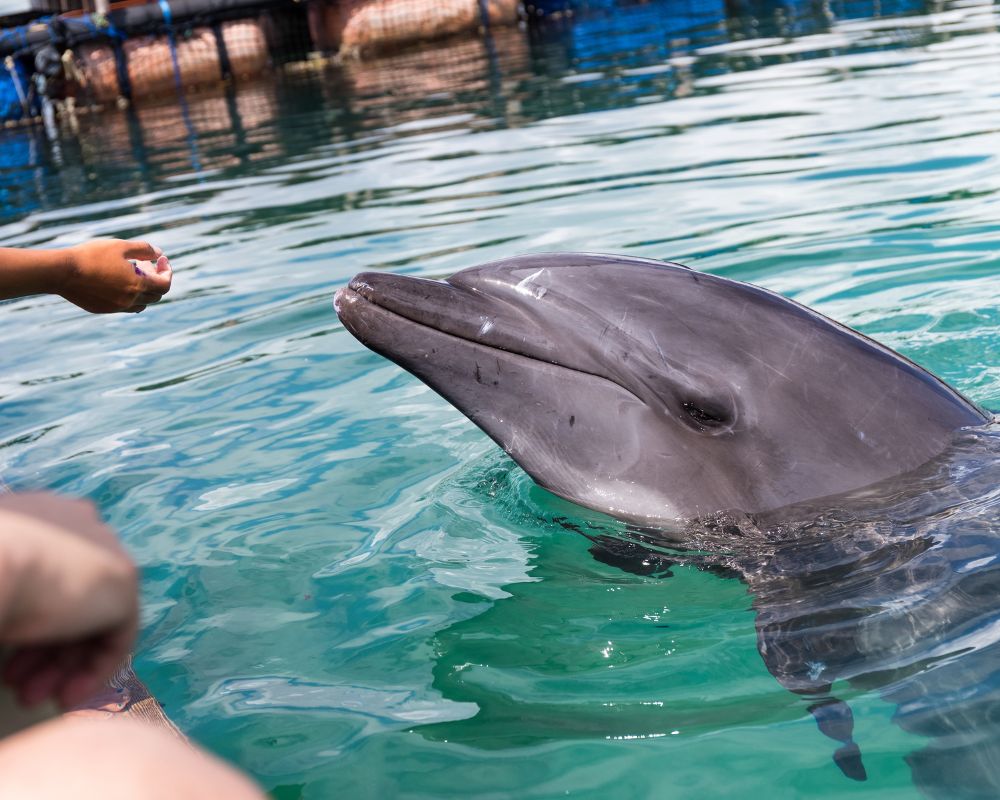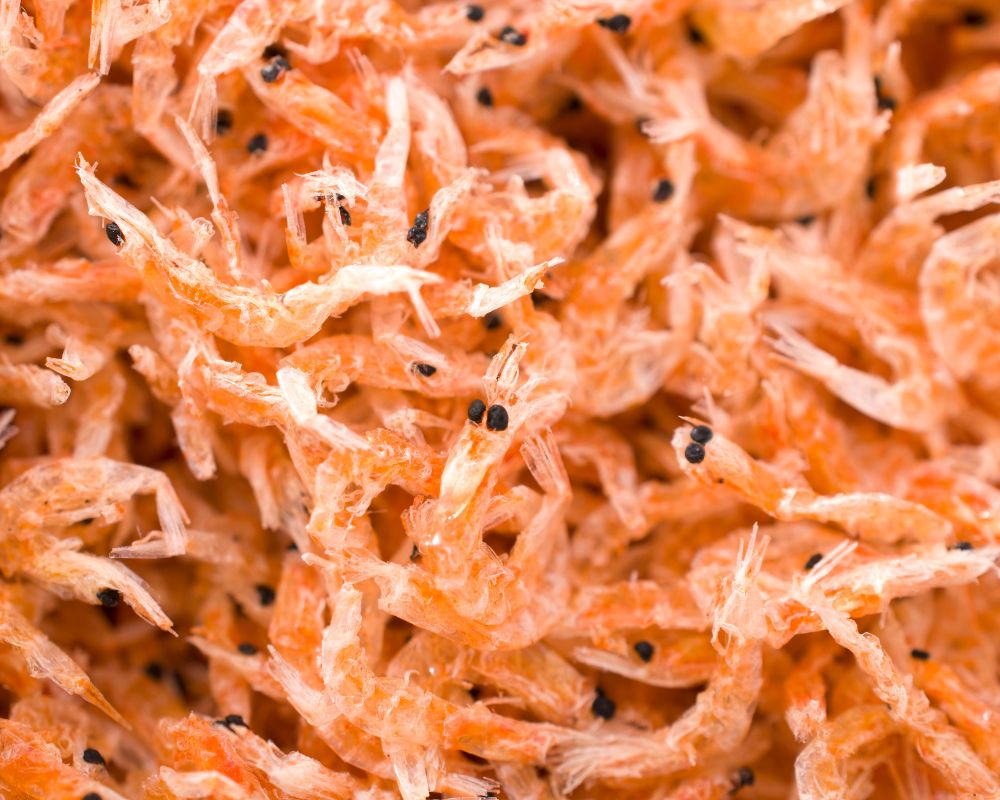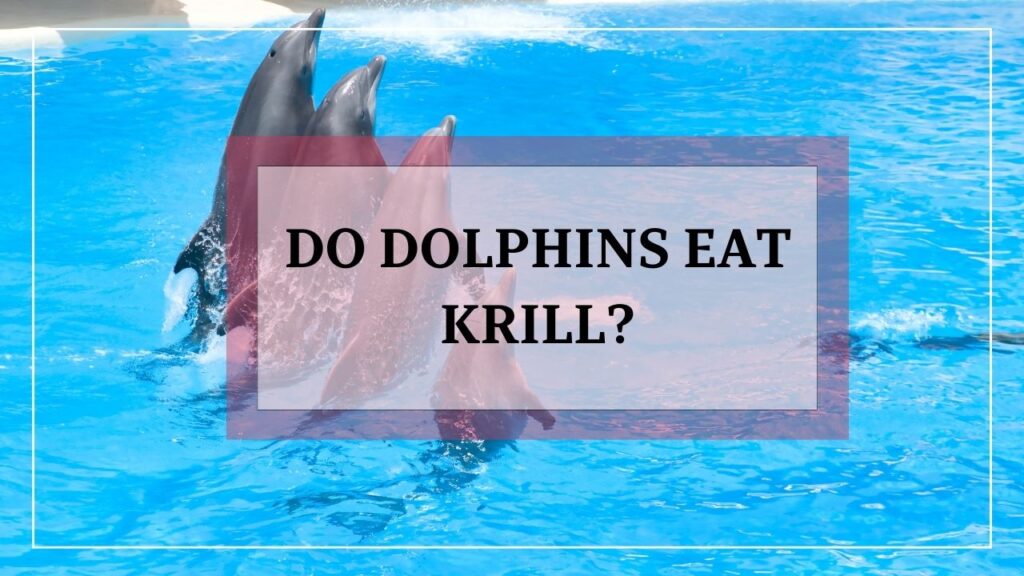Welcome to my blog about marine life! Today, we’re going to explore the fascinating world of dolphins and their feeding habits. Dolphins are highly intelligent marine mammals that have captured the attention and imagination of people around the world. From their playful behavior to their sleek and graceful appearance, there’s no denying that dolphins are incredible creatures.
One question that people often ask is whether dolphins eat krill, which is a small, shrimp-like creature that plays an important role in the marine ecosystem. In this blog post, we’re going to answer that question and provide a detailed look at the feeding habits of dolphins in general.
So, if you’re ready to learn more about dolphins and their eating habits, let’s dive in!
Do Dolphins Eat Krill?


Dolphins are opportunistic feeders, which means they’ll eat just about anything they can catch. While fish and squid are the primary components of a dolphin’s diet, they will also eat krill on occasion.
Krill are small, shrimp-like crustaceans that play a vital role in the marine ecosystem. They are a significant food source for many animals, including whales, penguins, and some fish species. While krill may not be as nutritious as fish or squid, they are still a good source of protein and other essential nutrients.
Which Dolphins Eat Krill?
Different species of dolphins have been observed eating krill, including common dolphins, dusky dolphins, and Pacific white-sided dolphins. However, it’s important to note that krill is not a significant part of their diet. Dolphins prefer to eat fish and squid because they are easier to catch and provide more nutrients.
Why Do Dolphins Eat Krill?
Dolphins will eat krill when other food sources are scarce or when they are in areas where krill is abundant. Krill can be difficult to catch and digest, so it’s not a preferred food source for dolphins. However, when times are tough, krill can provide a source of nutrition for these intelligent marine mammals.
So, while dolphins do eat krill on occasion, it’s not a significant part of their diet. Fish and squid provide more nutrients and are easier to catch, which is why they are the primary components of a dolphin’s diet. Krill can be a source of nutrition for dolphins in certain situations, but it’s not a preferred food source for these intelligent and opportunistic marine mammals.
The Benefits and Drawbacks of Eating Krill
While krill may not be a preferred food source for dolphins, it does offer some benefits as a potential food source. However, there are also some drawbacks to relying on krill as a primary food source.
Benefits Of Krill As A Food Source
Krill is a good source of protein and other essential nutrients. It’s rich in omega-3 fatty acids, which are important for maintaining a healthy diet. Krill also contains antioxidants that can help protect against disease and improve overall health.[1]
In some areas, krill can be abundant and readily available, making it an attractive food source for dolphins. This is particularly true in colder waters, where krill is a primary food source for many marine animals.
Drawbacks Of Relying On Krill As A Food Source
Despite its benefits, there are also some drawbacks to relying on krill as a primary food source. For one, krill can be difficult to catch and digest. Dolphins have to work harder to catch krill, as they are small and agile creatures that can quickly dart away from predators.
Additionally, dolphins are not the only marine animals that rely on krill as a food source. Competition for krill can be fierce, particularly in areas where krill is abundant. Dolphins may have to compete with other marine animals, such as whales, penguins, and other fish species, for access to krill.
Conclusion
After exploring the topic of whether or not dolphins eat krill, we’ve come to a few key takeaways.
First and foremost, the answer to the question “Do dolphins eat krill?” is yes, they do. However, it’s important to note that krill is not a significant part of their diet. Dolphins primarily feed on fish and squid, but they will eat krill when other food sources are scarce.
While krill does offer some benefits as a potential food source, such as its nutritional value and abundance in some areas, there are also some drawbacks to relying on it as a primary food source. Krill can be difficult to catch and digest, and competition for this food source can be fierce.

